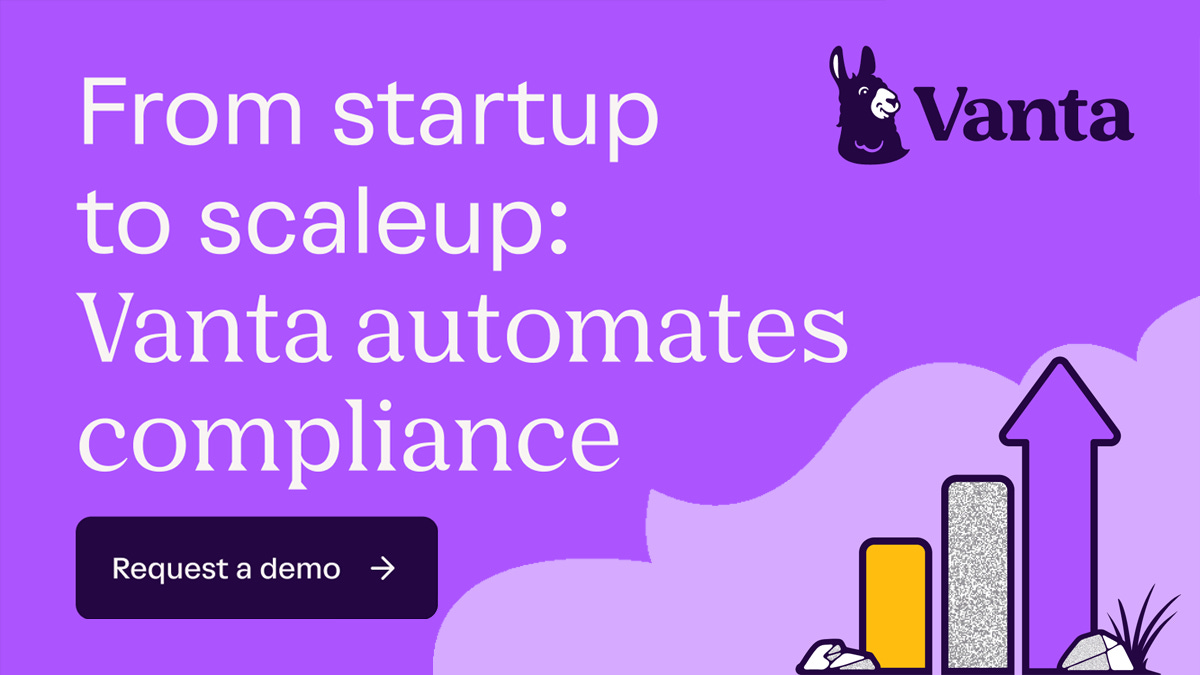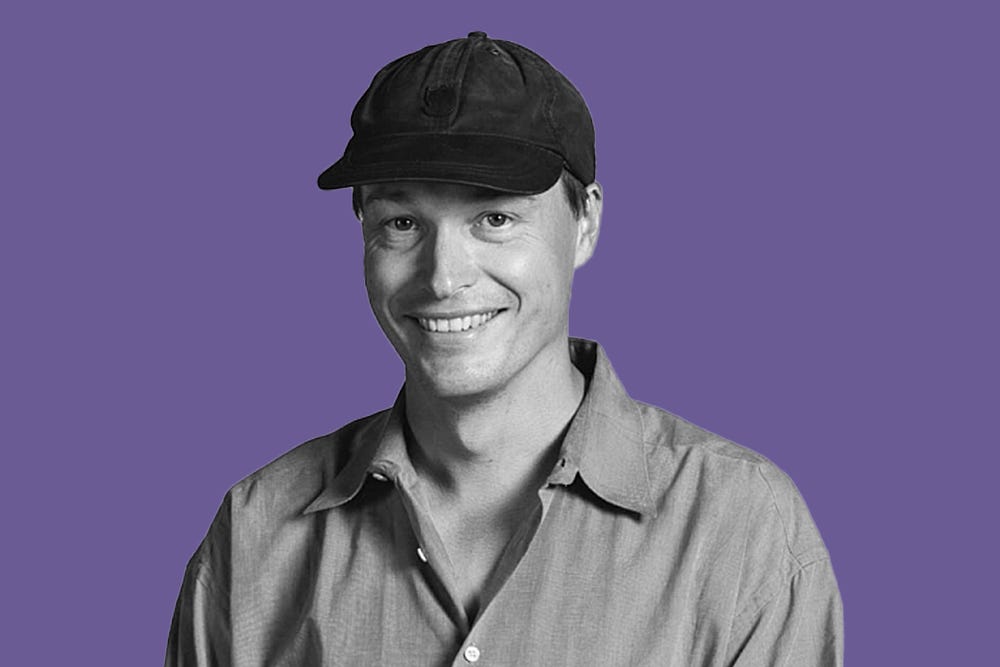Can we build our own Silicon Valley in Auckland? Wayne Brown thinks so
PLUS: Harnessing quantum computing on Wild Hearts + Microsoft and Google lay out their future wares.
Welcome to mid week!
We made it to hump day and we’re even very close to the hump of 2025. Which even thinking about triggers some background existential dread for me so let’s get straight into the newsletter.
Here’s what’s in your Daily Shot of news you don’t want to miss
Can Wayne Brown build Silicon Valley in Auckland?
Pod Pick: Building commercial quantum computing Dr Pete Shadbolt
Microsoft kicks off it’s annual build conference, seeks to build ‘open agentic internet’
Google looks to disrupt itself before someone else gets there first
US newspaper prints summer reading list with books that don't exist
Got a tip, press release or just a comment? Drop us a note: hello@caffeinedaily.co - we love to hear from you.
Finn & the Caffeine team
Scaling compliance made easy
Unlock bigger deals, enter new markets, and prove trust as you grow—all for a fraction of the time and money.
Vanta automates up to 90% of the work needed for SOC 2, ISO 27001, CPS 234, Essential 8 and more—saving you hundreds of hours and up to 85% of the cost.
Vanta’s compliance programme makes it simple to lay crucial security foundations that scale as you grow. Join 8,000 companies like Atlassian, Dovetail, InDebted, Sharesies and Flossie that use Vanta to build trust and prove security in real time.
Check out a real time customer story from NZ startup success Flossie.
PLUS download this FREE GLOBAL GUIDE to starting a ‘Security Compliance Programme.
We’re excited to partner with BNZ. As New Zealand's largest business bank, BNZ shares our mission to support the next wave of founders and operators. Over the coming months, we’ll be working together to share insights, tools, and stories that help you grow smarter and faster. Keep an eye out every Thursday for content powered by BNZ.
Can Wayne Brown build a Silicon Valley in Auckland? Well, I had been bemoaning the lack of bold thinking for the tech and startup scene on the part of central government and now here comes Wayne Brown and local Government with a plan that has no lack of ambition, if still a little light on specifics.
As part of a Tech Week event he was hosting yesterday, the Auckland Mayor announced a Innovation & Technology Alliance which will “bring together leaders from business, investment, research, and central and local government into a formal Alliance to align efforts and accelerate innovation outcomes.”
While there’s obviously a lot of detail yet to be worked out on how exactly this looks, we’re certainly hearing the right noises. The alliance will apparently focus on merging private and and public interests to eliminate the usual barriers to startups like lack of capital and hirable talent. It will have a focus on supercharging Auckland’s already surging sectors in foodtech, medtech, biotech, and fintech.
Read the full release here but the a key quote is below
“Silicon Valley has concentrated huge technological skills to produce mostly trivia and entertainment. I’ve told industry leaders today that I want our tech brains to produce meaningful, profitable applications that lift our city and country’s already great advantages in food tech, medtech, biotech, and fintech. I will be working alongside these people to bring the public and private sectors together.”
Bold call to say Silicon Valley is producing mostly ‘trivia’ but I applaud the spirit.
Pod Pick: Building commercial quantum computing Dr Pete Shadbolt - Our friends over at BlackBird have put out some bangers on their WildHearts podcast this year but they saved a particularly excellent one for their season finale. With all the frothy noise about A.I dominating headlines it’s easy to miss the quieter revolutions happening which could be just as impactful on how you run your business. I’d highly recommend checking out this episode with Dr Pete Shadbolt, co-founder of PsiQuantum, a company racing to build the world’s first utility-scale quantum computer. The conversation focuses not on the dense theory of quantum mechanics but the tangible, real trials and triumphs of engineering a machine which can harness those strange powers to make a real difference in the world today. Listen to the full episode here.
In this conversation, they cover:
🚀 Why PsiQuantum is chasing 1 million qubits—not 300, not 3,000🏗️ What it takes to move quantum computing from theory to hardware—with welders, chip designers, and aerospace engineers
📉 Why academia can be a trap—and how PsiQuantum built an anti-academic company culture
🌐 The real-world applications of quantum computing: from designing drugs to revolutionising materials science
👩🔬 How team DNA, not just tech, shapes PsiQuantum’s ability to scale and execute
⚙️ Why quantum computing isn’t a mass adoption tool - and why that’s perfectly okay
🔥 How engineering targets that once caused mutiny are now being hit daily
Microsoft kicks off it’s annual build conference, seeks to build ‘open agentic internet’: It’s not just a big tech week at home, while we’re trying to chase building our own Silicon Valley, over in the original one the companies we seek to emulate are hosting annual conferences and unveiling their future plans for both businesses and consumers. Microsoft’s four-day build conference kicked of yesterday and there are no prizes for guessing what the theme was.
There were many announcements and some of them were quite niche and technical taken on their own (its a dev conference after all) but the big picture was that Microsoft is laying the digital infrastructure for agentic AI tools to do more and more work online autonomously.
This might sound like the same thing we’ve heard before but even if your eyes glaze over at the very mention of ‘agentic’ AI, I would highly recommend reading the full blog post summarizing some of the announcements. The way we conduct our personal and professional lives online will be shaped by the environment that a handful of tech titans are building, so it is worth every founder paying attention.
Google hosts I/O conference and unveils the future of search: Over in another extremely expensive building, Microsoft’s rival was also talking about A.I a lot. There were many headlines to come out of it and you can check out a good wrap from the Verge here but the biggest announcement was that A.I mode is coming for search.
Google has been the front page of the internet for a long, long while and that has come with an immense amount of power being concentrated in its hands (hence the multi antitrust court cases they’re working through currently) and now they are seeking to maintain their dominance by disrupting the foundation of their business before someone else disrupts it for them.
The new ‘AI mode’ rolling out across the US will function more like a chatbot than traditional search, allowing users to ask follow up queries and get a comprehensive answer without ever having to visit any of the websites the information is drawn from. It is, as CEO Sundar Pichai said at the conference ‘a fundamental reimagining of search’. For all the businesses who depend on web traffic directed by Google, it could also pose a fundamental threat.
US newspaper prints summer reading list with books that don't exist: Come on a tangent with me for a second, you’ve read this far so you may as well finish.
You know how you go to your doctor and when they ask you how much you drink a week or how much fast food you eat on average, they just double whatever you say in their head because they know that no-one ever freely admits they’re doing something bad until they’re caught?
I have a nagging feeling that AI is actually much further penetrated into work and personal life than most people realise for similar reasons. As AI tools become more sophisticated and the outputs harder to distinguish, I think a huge amount of work being done currently and presented as human is really done by AI and we only find out when someone is caught.
Case and point, this reading list for Summer reading printed in a US newspaper which was filled with books that didn’t exist because the reporter had simply used AI to generate it.
That’s the problem with AI, it so loudly and confidently wrong that it’s hard to notice unless properly checked. The public caught this one and everyone involved was suitably shamefaced and no-one was hurt.
How long until an AI tool is used for something serious, is confidently wrong enough to go unchecked, and we only find out after it’s too late?
That’s it for today, thanks for reading. Want to get in touch with a news tip, bit of feedback or just to chat? Email hello@caffeinedaily.co













